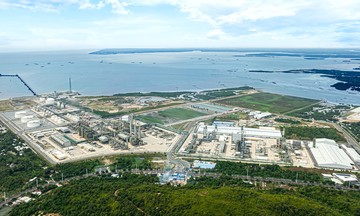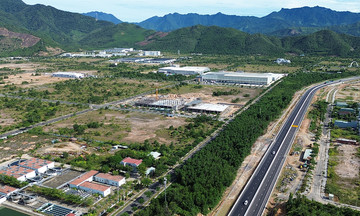Vietnam Sun Corp. (Vinasun - VNS) reported a more than 14% decrease in Q2 revenue, totaling over 216.7 billion VND. After deducting the cost of goods sold, the company's gross profit was over 46.7 billion VND, a 6% improvement compared to Q2 2024. They also earned an additional 3.3 billion VND in financial income from interest on deposits.
Conversely, financial expenses increased by 50% to 7.9 billion VND, primarily due to interest expenses. Selling expenses were recorded at 17.6 billion VND, a 6% decrease. Management expenses were approximately 18.8 billion VND, down 8%. Despite these costs, Vinasun's operating profit reached nearly 5.7 billion VND, an improvement of about 2.6 billion VND year-on-year.
However, other income decreased by almost one-half to 7.7 billion VND, primarily due to reduced profits from the disposal of fixed assets. Meanwhile, other expenses increased by 34%, attributed to taxi advertising costs. This resulted in the company's other income reaching only 6.6 billion VND, a 52% decrease.
Overall, Vinasun's after-tax profit was over 9.9 billion VND, a decrease of over 41% compared to the same period last year. This is also the lowest level since 2022, when the company began recording positive profits after two years of pandemic-related losses.
For the first 6 months, the company reported revenue of over 451 billion VND and after-tax profit of over 24 billion VND. Both figures represent decreases of 15% and 38% respectively compared to the first half of 2024.
This year, VNS aims for revenue of nearly 977 billion VND and after-tax profit of over 53.6 billion VND. While the revenue target is slightly lower (2.5%) than in 2024, the profit target is down more than 36%, the lowest since 2021. After two quarters, Vinasun has achieved 46% of its revenue target and almost 45% of its profit goal.
Vinasun acknowledges that 2025 presents ongoing challenges in its recovery and development. Therefore, the company's primary focus is investing in hybrid vehicles to replace gasoline-powered cars, continuing to develop and apply scientific and technological advancements in operations, management, and business, and attracting skilled drivers through cooperative policies and fair income distribution.
However, they face significant competitive pressure. According to a Mordor Intelligence report, Vinasun held only a 2.32% market share in the 4-wheel ride-hailing sector in Q2. This figure is low compared to competitors such as Xanh SM (44.68%), Grab (36.08%), Be (5.03%), and Mai Linh (4.26%).
At the annual general meeting in late April, the management board acknowledged the "extremely fierce" competitive environment. They mentioned an electric vehicle company that increased its capital to over 18,000 billion VND in two years and another company that has raised 12 billion USD since 2024, while Vinasun only has 1,100 billion VND. "This demonstrates the pressure we are under," a VNS representative shared.
When asked by shareholders about the effectiveness of replacing gasoline cars with hybrids, the management board affirmed this is a societal trend and aligns with customer preferences. Hybrid vehicles have an investment cost 1.4-1.5 times higher than gasoline cars, but Vinasun aims to maintain fares comparable to gasoline cars while also competing with electric vehicles.
To purchase new vehicles, according to the financial report, the company borrowed nearly 554 billion VND at the beginning of the year, primarily long-term loans from banks. In the past two quarters, VNS spent nearly 16 billion VND on interest payments. By the end of June, the company's total financial debt decreased by 13.6% to over 478 billion VND.
However, they emphasize the company's profitability, which is not dependent on older vehicles. "Only Vinasun has this type of vehicle," the company leadership stated.
Tat Dat












